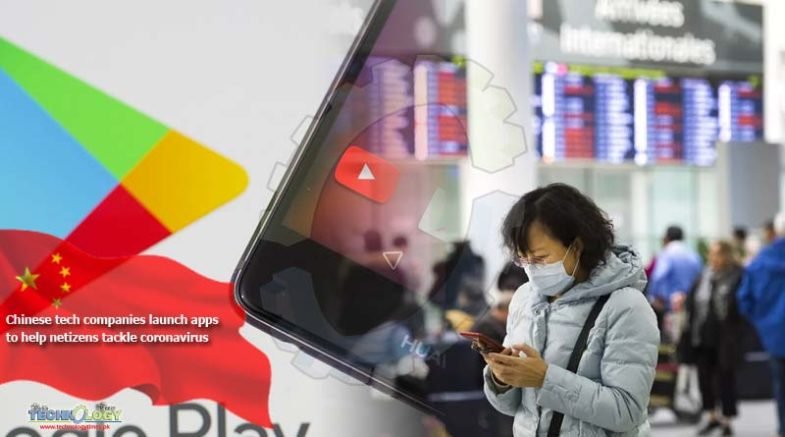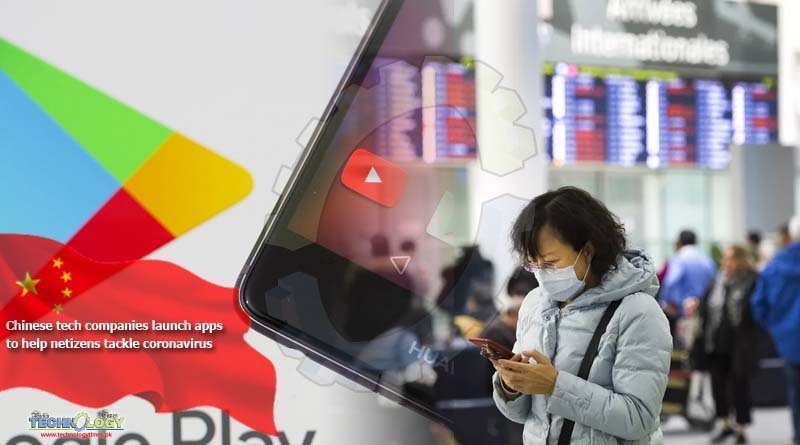Chinese tech companies have launched a spate of platforms and services aimed at providing verified information about the coronavirus outbreak The new ad hoc tools include platforms that map recent infections, provide updates about the epidemic and offer free online doctor consultations

With the coronavirus outbreak continuing to spread around the country, Chinese tech companies have launched a spate of platforms and services aimed at providing verified information about the illness.
The 2019-nCov virus has been sweeping across China since January and has already claimed 636 lives and infected almost 29,000 people as of Friday morning. Cases have also been reported in 24 other countries including Thailand, Singapore, Japan and the US.
The new ad hoc tools include apps and platforms that map recent infections, provide the latest updates about the epidemic, and facilitate free online doctor consultations and AI-powered answers to virus-related questions.
Here are some of these new apps.
1. Real-time virus tracking Chinese internet company Qihoo 360 joined forces with tech company NoSugarTech to develop a tracking platform that lets users check whether they have recently travelled near any confirmed infected people, according to the company.
Data on the platform comes from public verified sources such as state-owned media reports and local government websites. The platform is supported by Qihoo 360’s artificial intelligence (AI) technology to ensure that information is timely and accurate, according to local tech media PingWest. NoSugarTech has also partnered with state-owned media People’s Daily, which will be responsible for reviewing the reliability of the information sources, local media 36Kr reported.
Users can enter their region, the date of their trip, flight or train number to see if any infected patients were on the same route. The platform supports searches of various public transit such as trains, flights, buses, undergrounds, and taxis. More than 55 million people have used the service as of January 31, according to media reports.
Citizens in Guangzhou and Shenzhen can also find out if any infected patients were living in their neighbourhoods using a WeChat mini-program. The mini-app can map out confirmed infections of the virus geographically by integrating case reports from authorities and annotate them on a map, Reuters reported. Confirmed cases will be denoted with exclamation points on a map.A mapping company named QuantUrban also launched a similar tracker on its browser-based maps, covering another nine cities in Guangdong province, according to Reuters.
2. Free online doctor consultations from Baidu has launched a free online doctor consultation platform to the public for pneumonia-related questions. By encouraging people with minor illnesses to consult doctors online, this platform aims to ease panic among people and save hospitals from overcrowded situations. Users from Wuhan will be prioritised in matching with doctors.
The free telemedicine service can be accessed via the Baidu app. Over 92 million people have visited the platform as of February 6 and more than 2.7 million inquiries have been made, according to the service’s landing page.
The Chinese tech giant has partnered with other online health care services such as Ping An Good Doctor and WeDoctor to integrate their online doctor resources into the platform and enhance the efficiency of consultations, the company said.
3. AI-powered queries by AlibabaAlibaba’s research institute Damo Academy developed an AI-powered public health service tool, first deployed by the government of Zhejiang province on January 27, that provides information related to the virus. The system can answer most inquiries regarding the pandemic via an app that serves as the Zhejiang governmental service platform.
With voice recognition and other AI-related integrations, the system can provide answers to various questions using information released by authorities, such as the location of nearby hospitals or how to choose a medically-approved face mask. In the case of unsolved questions, it will transfer queries to a human employee. The system has successfully tackled more than 92 per cent of online inquiries on Zhejiang’s governmental service platform on its first day, Alibaba said.
The AI-powered system has been deployed in more than 30 provinces and regions across China as of February 1, including Hubei province, where the virus was first detected.
